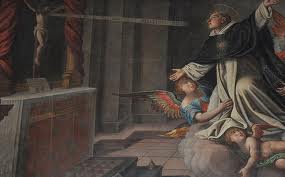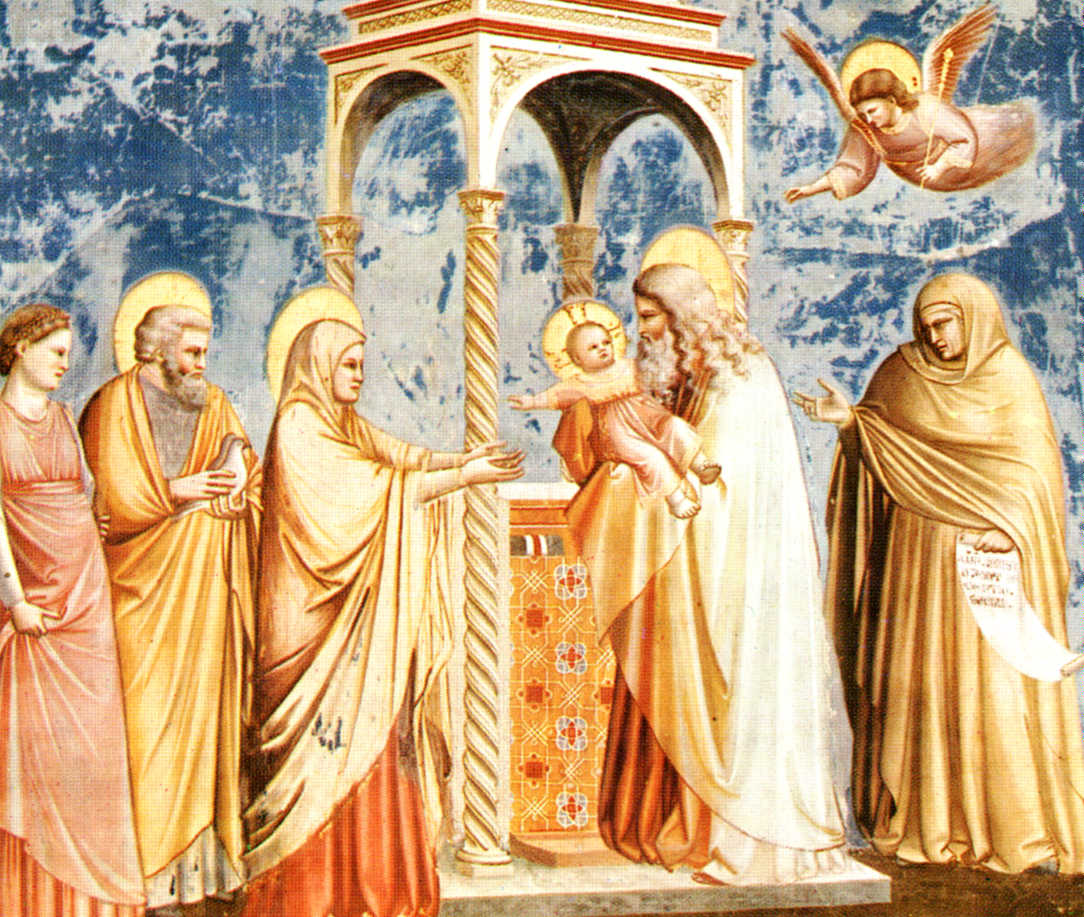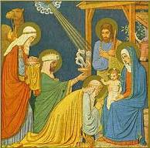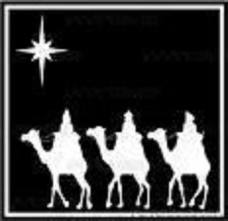
You have asked me, John, most dear to me in Christ,
how you should set about studying in order to build up a rich store of knowledge. This is the advice I give you on the subject.
1. Do not plunge straight into the sea, but rather enter it by way of little streams, because it is wise t work upward from the easier to the more difficult. This, then, is what I would teach you, and you must learn.
2. I would have you slow to speak.
3. Cherish purity of conscience.
4. Never omit your times of prayer.
5. Love to stay in your own cell if you want to gain admission to God’s wine-cellar.
6. Show a cheerful face to all.
7. Never pry into other people’s business.
8. Do not become over-familiar with anyone, because familiarity breeds contempt and gives a pretext for neglecting serious work.
9. Take care not to interfere in the words and actions of outsiders.
10. Do not waste time in useless talking.
11. Be sure to follow in the footsteps of good and holy men and women.
12. Do not concentrate on the personality of the speaker, but treasure up in your mind anything profitable he or she may happen to say.
13. See that you thoroughly grasp whatever you read and hear.
14. Check up on doubtful points.
15. And do your best to hoard up whatever you can in that little book-case of your mind;Â you want to fill it as full as possible.
16. Do not concern yourself wit things beyond your competence.
By following this path, you will throw out leaves and bear serviceable fruit in the vineyard of the Lord of Hosts all the days of your life.
If you stick to these counsels, you will reach the goal of your desires.
Farewell.
St. Thomas Aquinas (1225-1274)

Then a ploughman said, Speak to us of Work.
And he answered saying:
And all knowledge is vain save when there is work,
And all work is empty save when there is love;
And when you work with love you bind yourself to yourself, and to one another, and to God.
And what is to work with love?
It is to weave the cloth with threads drawn from your hear, even as if your beloved were to wear that cloth.
It is to build a house with affection, even as if your beloved were to dwell in that house.
It is to sow seeds with tenderness and reap the harvest with joy, even as if your beloved were to eat the fruit.
It is to charge all things you fashion with a breath of your own spirit.
And to know that all the blessed dead are standing about you and watching.
Often have I heard you say, as if speaking in sleep, “He who works in marble, and finds the shape of his own soul in the stone, is nobler than he who ploughs the soil.
“And he who seizes the rainbow to lay it on a cloth in the likeness of man, is more than he who makes the sandals for our feet.â€
But I say, not in sleep, but in the over wake fullness of noontide, that the wind speaks not more sweetly to the giant oaks that to the least of all the blades of grass;
And he alone is great who turns the voice of the wind into a song made sweeter by his own loving.
Work is love made visible.
And if you cannot work with love but only with distaste, it is better that you should leave your work and sit at the gate of the temple and take alms of those who work with joy.
For if you bake bread with indifference, you bake a bitter bread that feeds but half man’s huger.
And if you grudge the crushing of the grapes, your grudge distils a poison in the wine.
And if you sing though as angels, and love not the singing, you muffle man’s ears to the voices of the day and the voices of the night.
By Kahlil Gibran, The Prophet

IMMANUEL – God with us – is the central belief of all Christians and the very reason for all Christmas festivities. This Good News proclaimed at the Vigil Mass, taken from Matthew 1:18-25, says that the angel of the Lord appeared to Mary’s betrothed husband Joseph in a dream and told him that Mary’s conception through the Holy Spirit was to “fulfill what the Lord had said through the prophet” that “the virgin shall conceive and bear a son, and they shall name him Immanuel†(×¢Ö´×žÖ¸Ö¼× ×•Ö¼×ֵל).
Before the time Jesus was born, it could have been more difficult to know God and discern God’s will. Now to us it has been revealed that God, in the person of Jesus, was born and, in the body of Christ, is born and shall be born among us (cf. Jn 1:1-18). God has shared the human condition and is with us. What more do we want? Yet, the question is, are we ready to let God be with us?
The faithful examples of two other main characters in the Christmas event are well worth imitating. Mary when encountering the angel Gabriel’s greeting “The Lord is with you” “was greatly troubled and pondered what sort of greeting this might be.” Though she fully realized her own situation, “How can this be, since I have no relations with a man?” strongly believed in God, she accepted the challenge, “May it be done to me according to your word” (cf. Lk 1:26-38). Likewise, Joseph “did as the angel of the Lord had commanded him,” though he had early on decided to divorce his betrothed spouse quietly (cf. Mt 1:18-25). Would there be the event of the Incarnation without Mary and Joseph’s cooperation in God’s plan? In other words, can God be with us if we are not ready to be with God?
Religious People
God, the real source of all consolation and happiness, is the ultimate desire of all humanity. In the course of history and always as such, there have been and will be countless people devoting themselves to God. They who devote their life searching for God and faithfully obeying God’s rules are considered religious or devout. They are with God and, whether or not they are aware of it, God is with them.
What a great honour for us that God has taken the initiative to become a human person dwelling among us! We can now feel and grasp some image of God based on what was written and on what we reflect in our daily life. Thanks to the teaching of Jesus recorded in the Bible and handed down by his disciples, it should be easier for us to find ways to be with God. This, however, requires from the religious people a lot of effort and self-discipline.
Probably no one wants to live with any constraint, in every sense of the word. That is why to become a Christian, in its strict sense, to be religious, to let God be born in us and us in God, is a vocation!
Human Religious
Religious people are first of all a human person like anyone else. They have to live with and live for other people. Apart from all automatic reflex actions of man, in which full knowledge and choice play no part, they have to struggle on to be more and more human each day. They need to be educated and know how to educate themselves so as to deepen the capacity for their vocation in life. Being regarded as a religious, they are encouraged and challenged to develop and address their human personality as a bridge for others to meet God. It could not be agreed more that a religious is nothing but an empty brand name, should the person fail to live as a mature and balanced human being.
Holy Religious
As a religious, one is expected not only to be humane but also to be holy. In the Hebrew language, the word “holy” conveys the idea of being separate or set apart from that which is common or profane. We know that God is holy, utterly separate from sinners (Heb 7:26). It is God’s intention that his saints also be holy or set apart from the world around them. It is also the expectation that today’s people, regardless of their beliefs, may have when they think of a religious. Indeed, a religious should be first of all a person of God, not a scholar of erudition and cleverness. In the person of a religious, modern people should be able to see a sign of God.
A person of God
Once dedicated to God, a religious is called to put on God’s love and carry out God’s will. It is anticipated that a religious becomes a visible image of God in life, an intermediary through whom God consoles His people. A religious should be, therefore, like a gentle and humble steward, who is always ready to serve his God and his God’s people without seeking his own glory. As it is written in Psalm 115, “Not to us, O Lord, not to us, but to your name give glory” (Non nobis Domine, sed nomini tuo da gloriam). In order to be a “true servant of salvation for their brothers and sisters” (Dominican prayer for vocations), the religious have to treat their spiritual duties as being more important than other things and do it diligently.
A Matter of Religious Institutes
A religious life as a stable form of Christian living recognized by the Church has attracted people of the same ideal coming together, forming a legitimate religious body. Such religious institute can be a fulcrum, a place to stand, from which a religious can find necessary means to fulfill their call to perfection. The religious institute, however, can at times be more of a hindrance than a help. This happens when the enthusiasm and zeal of the founder to make God known, loved and served, and thus to save souls, are fading over time, and the image of God is then replaced by the religious body or the religious themself.
Mindful Religious
At Christmas, God has become man and shared with us our humanity so that we are reminded of the divinity we have shared with God when He created us after His image. As discussed above, a religious is one who is at first born into the world, with their people and for their people; yet they “do not belong to the world,” they have been “chosen out of the world” (Jn 15:19).
Once accepted God’s call, the religious have to be always mindful that from that moment on they are separated from all earthly things to only serve God and God’s things. The meaningful and happy life of the religious is that they are the sign directing people to God. It may not be too much to say that they are called to act as God’s “holy door, always open, embracing all, full of compassion, that understands the pains and sufferings of humanity, protecting and consoling and guiding all people to the Loving Father” (FX. Nguyen Van Thuan’s Dream).
In our culture, the religious are often overwhelmed by praises and special treats, which may make them complacent after years of comfort. The mindful religious should be able to distinguish the spiritual thing from the rest and to avoid all possible temptations of being narcissistic. Should they slow to let their mind and heart be occupied by God, to let God be with them, they may risk being flooded with wordly things.
Peace to men of goodwill
This reflection is finished on the second day of New Year and the feast of the Epiphany of the Lord. I am thinking of the new year as the new phase of life. Though very often on my way following God I have failed to live up to my vocation and even offended God, whose love and faithfulness is always constant. What a shame for me! Yet believing that “My grace is sufficient for you” (2Cr 12:9) I am trying to make a New Year’s resolution.
In the night when Jesus was born, the heavenly host with the angels sang, “Gloria in excelsis Deo, et in terra pax hominibus bonae voluntatis” (Lk 2:14). Indeed, “glory to God in the highest, and on earth peace to people of good will.” The glory of God that people have ever searched for could only be shone to the “bona fides,” those who have good faith. The magi who looked for God out of their genuine simplicity could finally meet the Immanuel, do him homage and go home with peaceful joy in their heart. I should also learn from them by sincerely seeking God out of a simple wish to do him homage. Since God has chosen to be born in the most simple and humble place on earth, surely He wants to be born in a simple and humble heart. That is why God appeared to the magi in the form of a star and guided them to His place; God did not do so with King Herod because he said so but intended otherwise.
Loving God, grant that the prayers I am daily making with my lips I may truly believe in my heart and practise in my life. Help me to be ever mindful of my vocation – to be the manger for the Nativity and the sign directing people to You. May I live out my vocation more earnestly and bravely this year! Amen.
Peter Thoại

EPIPHANY OF THE LORD
 We celebrate today the great feast of the Epiphany of our Lord.
We celebrate today the great feast of the Epiphany of our Lord.
God, the creator of humanity and the world, manifests himself to us in many ways. He “appears through†(Diaphany) in the incredible beauty of his creation. He shows himself (Theophany) to his people in the history of salvation. And, He reveals himself, above all (Epiphany) in his Son Jesus Christ, the Savior and Light of the World.
What is the meaning of Epiphany to us today?
1.    THE LITURGY OF THE WORD
The sacred readings help us find the meaning of the Epiphany of the Lord.
First Reading: Is 60:1-6. Disciples of the prophet Isaiah provide us with a beautiful eschatological poem which is centered on the light. God is the light that enlightens all: all nations journey to Jerusalem, where the glory of the Lord shines for all peoples, who offer gifts to God, including gold and frankincense.
Second Reading: Eph 3:2-3, 5-6. God wants the salvation of all peoples, without distinction. He gives sufficient graces to all, and Christ died for all. All are called to participate in the mystery of Christ, to become members of the Body of Christ, to be coheirs and copartners of Christ.
The Holy Gospel: Mt 2:1-12. With the lovely story of the Magi, Matthew teaches us that the manifestation or appearance of God in Jesus Christ is for all peoples – believers as well as unbelievers. At Christmas, Jesus reveals himself to the Jews, represented by the Shepherds. At Epiphany, Jesus appears to all peoples, represented by the Magi. In both cases, Jesus manifests himself as the Light of the World.
2.    REFLECTION
Let us reflect briefly on the Magi, and on the meaning of the symbols of the star and of the gifts given by the Magi.
Christmas and Easter, the two greatest feasts of the Christian, remind us of our life as a pilgrimage, as a searching for Jesus in our own life. The Magi in Christmas and the Disciples of Emmaus in Easter encourage us to continue the journey.
Tradition has enhanced the story of the Magi (wise men) from the East. By the fourth century, the Magi became the Three Kings, one of them black. By the ninth century, the Three Kings had the current names: Melchior, Gaspar and Balthazar.
The Star that guided the Magi to Bethlehem, to Jesus, symbolizes Jesus as the Light of the World, our light of faith. Jesus Christ is not just a Star, but the Morning Star, the Sun. Benedict XVI tells us in his encyclical on hope, Spe Salvi (“Saved in Hopeâ€) that Jesus is the Sun, the guide of our life, and the saints are the stars that guide us to Jesus: Mother Mary is the main star among the stars – Stella Maris!
The Magi offered to Jesus three significant gifts: gold to signify that the Holy Child was King; frankincense, that He was divine, God; and myrrh, that He was going to die and be buried.
3.    OUR RESPONSE
Our life is a pilgrimage to the house of the Father – to heaven, our home. It is a constant search of Jesus within and around us, that is, a deeper union with him and all others – our brothers and sisters.
Jesus is the Light of the World, our light: the light that illumines our darkness, burns our sins, heals our hearts and our bodies, and helps us stand up when we fall.
Like the Shepherds at Christmas, like the Magi at Epiphany, we offer to Jesus sincerely our simple gifts: our life, our love! The Magi exhort us to present to Jesus “the incense of our worship, the gold of our gratitude, and the myrrh of our repentance†(J. M. Cabodevilla).
Like the Shepherds, like the Magi, we offer to Jesus our gifts as a sign of our adoration. The attitude of adoration is indeed the attitude through the Christmas Season: Mary and Joseph, the Shepherds, the Magi: they all adored the Child Jesus; they venerated him and knelt before him. We ought to continue doing the same: to worship Jesus, the Son of God and the Son of Mary. Thus, we recognize humbly our radical dependence on God, on Jesus, in the Spirit.
Jesus is God’s Epiphany to us. We ought to be – and become more – Jesus’ Epiphany to others, particularly to those around us. May people notice that we live in Jesus! May they realize that Jesus lives in us by the way we treat them with kindness and compassion! Being Jesus’ Epiphany to others is also the best way to have a peaceful New Year. May 2011 be a golden opportunity for all of us to become closer to Jesus: we will never, never regret it! 
Dear Lord, make us your light to all our brothers and sisters.
Lead us to your glory in heaven by the light of faith.
FR. FAUSTO GOMEZ BERLANA, O. P.
St. Dominic’s Priory, Macau: January 2011

ANOTHER CHRISTMAS WITH QUITE SOMETHING

Saint Dominic’s Priory, Dec. 27, 2010. – This Christmas is our fourth Christmas as a community in Macau. Following the tradition, just like any faithful awaiting a festive Christmas, we also prepared greeting cards, decorated the house, arranged the nativity scene and rehearsed Christmas carols for Masses and Christmas Eve performance. Yet this year is perhaps the first time ever since the establishment of the community that we could again experience a Christmas celebration with deeper joy and meaning.
Joining a group of retired policeman and teachers we set off for “Instituto De Menores” on December 18. Here we met a group of around 40 boys, from about 12 to 19 years of age. Guided by the policeman we began our activities with an impromptu prayer and the prayer to “Our Father.” Surprisingly, some of the inmates could recite the second one. Did they come from a Christian school!? We then had two hours together playing games, singing Christmas songs and finally sharing with them the snacks we had brought in. We went home with a good impression of these young friends: They were really an active but disciplined team!
Christmas Eve was probably the most busy and weary day of Christmas time. Nonetheless, the most joyful moment bursting at the end of the day, when “the Word became flesh and dwelt among us,” did make up for everything. Our 12-pew chapel which usually receives no more than 40 people now could seat a capacity crowd of around 70. There were at least seven nationalities unitedly present in this celebration. Amazing! Fr. Alejandro, the prior of the community and the celebrant at the Mass, said when he wished the congregation a Merry Christmas that this could be written as a new record. It was about midnight after the Mass. Everyone was then invited to join in a friendly party with the community.

On the two consecutive days later, with the help of a local friend, we formed a group of generous volunteers and again followed the retired policeman and the Beatitudes paying visits to the mentally disabled at St. Luis and St. Lucia centers. This time we did not have much to give them but music. With songs and dances we were trying to animate, uplift and share with them our Christmas joy. Some of them knew a good number of songs.
Some could dance quite well. Totally astounded, a question poses in my mind about the role of the intellectual, are they more human than these people? We realize that disabled people, as well as other unfortunate people, deserve more attention and compassion.
Is it only the young, the poor, the simple and the lonely, who are like the shepherds, that could understand Christmas!? Anyway, the fact was that when we reached out to herald Christmas joy to many people with our own life, many did come back to share their Christmas joy with us. A joy shared is a joy multiplied!
Peter Thoai

Two years in the making
The movie is an effort of home grown talents being a thirteen man film composed of all Filipinos. The executive producer of the project, Fr. Christopher Jeffrey Aytona, O.P. and neophyte film director, Fr. Marcelino Saria, O.P. led the artistic team together with the associate director, Marinette Losanta and director of photography and editor, Lauro Rene Manda.
The film was two years in the making. The team directed themselves in the revision and finalization of the script, treatment of the story, and making of mock-up props very much alike the Medieval tools and fixtures. The ocular preparation was on Aug 2009 in Spain, France and Italy. The shooting of the film ran from July to August this year.
All actors and actresses are Spanish, French and English who perseveringly portrayed their roles to give a picture of the life of St. Dominic and how the Dominican Order came into being.
The verse in Matthew resonates in the film as a conviction of St. Dominic, the words of Jesus to his disciples, “…whatever you do for one of the least of these brothers of mine, you do unto Me.â€
On his deathbed he said to his brothers, “Do not weep, I shall be of more use to you after death than I ever did in life.†(CBCPNews)
Dominic: Light of the Church trailer.mp4











